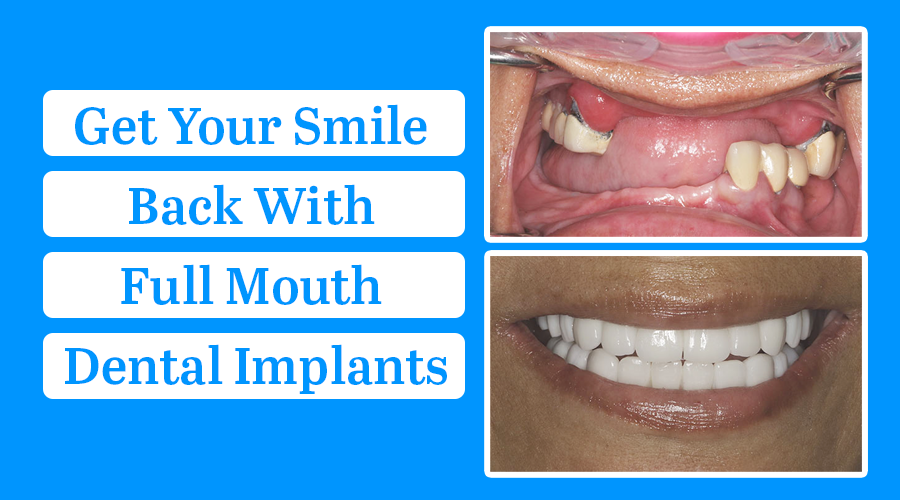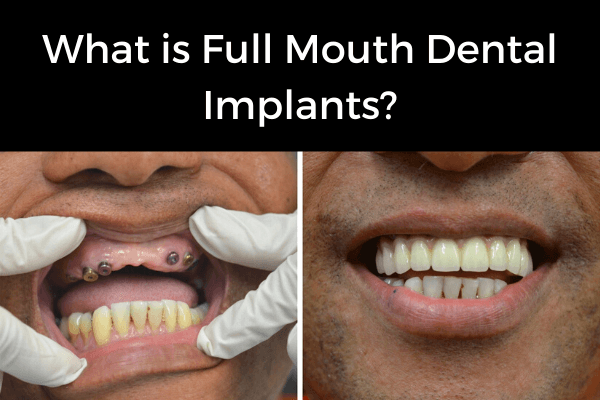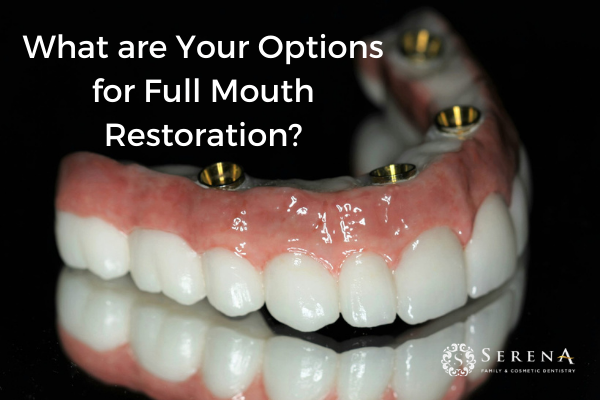Aging doesn’t mean you should settle for missing teeth. Full mouth dental implants have become the choice of many patients worldwide, and it’s for a reason.
Dental implants are the ideal alternative to natural teeth to replace missing or non-functioning teeth.
Choosing to have dental implants is an important decision, especially if you have all of your teeth removed instead of one or more. Take a look at what having full mouth dental implants entails and how they can help you live a better life.
What is Full Mouth Dental Implants?
As you may know, dental implants can replace a single tooth, or a set of implants can be employed to replace an entire row of teeth.
Instead of just using one dental implant for a single tooth being replaced with full mouth dental implants; your dentist can use anywhere from four to eight implants to replace an entire arch of teeth.
That’s right! To restore your full smile, all you need are at least four implants placed on the top and bottom of your mouth—that simple.
Thanks to the material, implants are made of (titanium). They have the remarkable ability to bond with living bones and act as if they were a natural part of the body.
As a result, the dental implant finally integrates into the jawbone, providing a solid, long-lasting base for your new teeth.
What Is the Full Mouth Dental Implants Process?
This type of surgery often causes nervousness in some patients, but at Serena Family & Cosmetic Dentistry, our San Diego dentist always ensures putting patients at ease by being with them in every step.
The implants, which look like small cylinders, are first inserted into the jawbone. The implants and bone should fuse over the next two to six months to form a solid foundation that can support your artificial teeth.
During this period, you can wear a temporary denture while the implants heal, which will restore some normalcy to your day-to-day life.
The base on which your new teeth will be mounted is completed with these temporary healing caps; as well as additional connecting devices that allow multiple crowns to support the implants.
Finally, your dentist in San Diego will fabricate full bridges or complete dentures for you and attach them to small metal posts (called abutments). After a brief period of time, you will regain confidence in your smile and your ability to chew and speak.
Each case is different, and some of these steps should be modified according to the patient’s needs. Your San Diego dentist will work with you to determine the best treatment plan.
What are Your Options for Full Mouth Restoration?
Fixed crown and bridge:
The treatment option most similar to having natural teeth is supported by implants. Teeth are permanently attached to implants using cement or precision screws after installing six or more implants.
Bar attachment denture:
The clips secure the denture to a bar attached to the implants in supported dentures. This design gives stability and support to the denture. The bar-supported denture can be removed and cleaned on a regular basis.
Implant-retained:
Denture attachments protect the denture from two or more implants. The denture gets attached to the implants with clasps but can be removed regularly for cleaning.
4 Advantages of Full Mouth Dental Implants
- Enjoy food again: dental implants that cover the entire arch of the mouth are completely attached to the jaw. When you eat, they will not move or loosen. Biting and chewing rough, sticky, hard foods is as easy as if you had an entire arch of healthy, natural teeth.
- Gain your self-confidence: full mouth dental implants are the closest thing to natural teeth; providing virtually the same level of esthetics, function, and support – you won’t have to take them out at night or fear they will slip or fall out when eating, talking and laughing!
- Stable smile: this type of implants are entirely locked in place and remains anchored to your jawbone at all times. They are fully supported by dental implants and require no pastes or adhesives to stay in place.
- No bone loss: Since full arch dental implants function like dental roots, they help stimulate the jaw bone. Since this stimulation keeps the jaw bone at a reasonable volume, facial structure and esthetics are not affected by the resorption of the jaw bone.
It’s never too late to choose what’s best for yourself. Living life to the fullest should be your priority, so letting tooth loss affect your life should not be an option.





